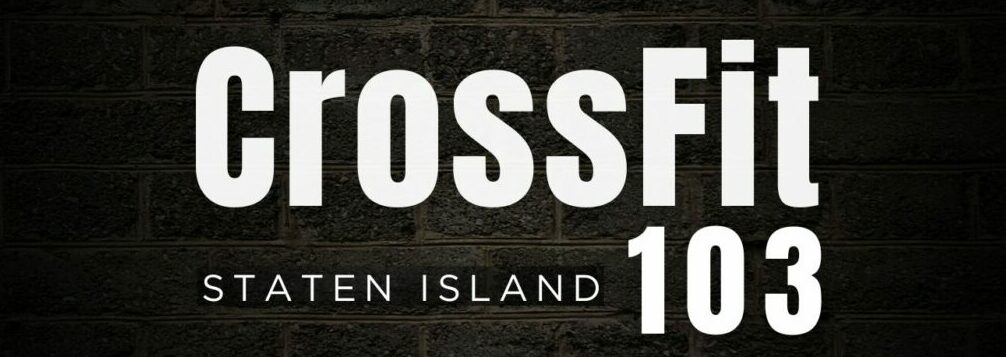We all make mistakes. It’s the inevitable guarantee of life. Some people make a lot of mistakes, while others *seem to make very few. (*you only see what people want you to see).
You can choose to either be consumed by your mistakes or you can use them to your advantage. You can learn from everything you do, even if you reach absolute failure and you believe you’ve done all you can.
One of the thought processes that I’ve developed over my 30 years of life is to analyze everything. You might call this “over-thinking”. Yes, I think a lot. I choose to do this, and I believe I have become a better person because of it. I believe most people vastly under-think.
You see, thinking is an art, and it takes a lot of humility. When you think, you are actually stopping yourself for a moment, and saying “are you sure this is right?” Thinking is questioning yourself. Thinking is disagreeing with yourself. And it’s a hard look in the mirror, sometimes, especially when you know you’re wrong.
There are some common thoughts people have, that are working so hard against them, it caused unhappiness, anxiety, lack of fulfillment, and slowed-down progress toward your goals. Here are 3 things I’ve learned not to do to be successful with anything.
1. Compare yourself to others
If we use the gym as an example, a lot of us work out just as much if not more for other people than we do ourselves – at least that’s how we start out.
Next time you’re in the gym, stop and take some mental notes. What are you thinking about? What passed your mind? Ever catch yourself spending too much time thinking about what he/she/they are doing?
When a big portion of your workout is driven by what other people think, how they react, how they look and how they perceive you, you’re going to get stuck in what we call comparison hell.
This is a place where you believe that because you’re not able to do what others are doing, or you don’t look the way others look, then you’re not making progress.
Comparison hell is a place for people who speak negatively to themselves, are unhappy with their performance in workouts, and likely other parts of their life.
We can break this cycle with a little play on words.
If you catch yourself saying things like these….simply change the words you use
1 – I can’t do that –> I can do my best
2 – I’ve never been able to –> I’m working on my weaknesses
3 – I’m not strong like them –> I am getting stronger every day
4 – They’re much better than me –> I’m new to this and still learning
Neuroscience and Psychology team up here to bring you a cocktail surely made to improve your life. We can only focus our attention on small subsets of information at a time. Here’s proof. When we shift our attention toward positive outcomes, the comparisons will simply drift away.
Try the above translations next time you’re in the gym comparing yourself to someone else. Bonus points if you can say it out loud.
2 – Prove others wrong

“Your potential, the absolute best you’re capable of—that’s the metric to measure yourself against. Your standards are. Winning is not enough. People can get lucky and win. People can be assholes and win. Anyone can win. But not everyone is the best possible version of themselves.”
― Ryan Holiday, Ego Is the Enemy
Comparison’s evil twin sister is proving other people wrong. People will go far and wide saying “I’ll show them”
This often takes us in a lot of different directions.
In a recent Joe Rogan Experience Podcast Episode, US Air Force Fighter Pilot and MMA Referee Mark Smith stated that in his early college days at the US Air Force Academy, one of his commanding officers said “you’ll never amount to shit”. Ever hear that from someone before?
He did prove them wrong. He went on to complete his bachelors degree, multiple masters degrees, flew for the USAF Thunderbirds, worked at the White House as a Liaison to NASA under President Bush, and currently flies for a commercial airline AND is a Referee for the highest level fights in the sport of MMA.
He turned “you’ll never amount to shit” into “I proved them wrong!”
This is an example of when someone turns around and does something extraordinary because of what someone said to them.
Mark Smith is an unusual case.
Usually, people don’t actually say these things to us, yet we still try to prove them wrong.
Then we justify our decisions by saying something like “I just need to prove it to myself”. What are you trying to prove, though?
In the gym, we create workouts and prescribe movements and weight to achieve a desired outcome. When these workouts are written, we’re taking into consideration your current ability AND movement selection that will help you progress as an athlete and give you the exercise benefit to help you reach your actual goals.

These workouts are not made for everyone! They’re made to be scaled for everyone. You read that right. Everyone should scale. 99.9% of the time, scaling a workout will give you a much better outcome, and you have nothing to prove.
If you go for the Rx almost every time and are disappointed by your performance, or you believe if you don’t do exactly what’s written that you’re not good enough, this will lead to a long road of frustration and lack of progress. Sometimes the result here is injury masked as the usual soreness.
Instead, when faced with the “prove them wrong” or “prove to myself” situation:
Prove that you have control.
Prove that you have discipline.
Prove that you can hold back.
Prove that your goals are important to you.
When you constantly try to prove your worthiness to sit at the table, you will see success in some areas, and I guarantee other areas of your life will suffer greatly. Remember, Ego is the Enemy.
Prove me wrong and take a week off from the gym without feeling guilty. You won’t.
3 – Over-escalate and over-dramatize
When an incident occurs and something goes wrong, we are once again faced with choices.
Imagine this scenario – because we’ve all been there.
You’re in the gym, and the workout of the day has snatches. You reluctantly attended because you know snatches are really challenging for you (comparison). You go anyway because the coach said he’d help you out.
During the warm up you are practicing with the PVC pipe and feel like you’re making some progress (YAYYY)
Then you grab the barbell and are instructed to work up in weight. You’re feeling good, so you go for a new personal best.

Bar comes up, and you start to shake and your legs are responding poorly.
You throw the bar down and curse to the almighty weightlifting gods. You say something to yourself like “Why can’t I ever get it right!” (insert expletives here)
Suddenly the whole class is looking at you and you feel embarrassed and overwhelmed.
This is an over-escalation and dramatization because you are equating one occurrence with every occurrence. It’s simply a lie to say this to yourself.
Let’s break down that sentence “Why can’t I ever get it right?”
Ever is considered binary language. It’s akin so saying something is black or white. It is or it isn’t. Is this true, though? You’ve already demonstrated that you can do it. In fact, if you counted, you’ve done it right more than you’ve done it poorly.
If you’re frustrated, a more true question to ask yourself would be “Why did I mess it up this time?”
Say that out loud. What do you feel when you say that?
Another way to change your perspective here is with this indirect translation.
Why can’t I ever get this right? ->
Why can’t I sometimes get this right? ->
Can I sometimes get this right? ->
I almost got it right! ->
Another, more relatable example.
A few weeks ago I was on a plane flying from Newark to Denver. The flight boarded at 7:00 AM, and my Wife and I had been awake since about 4:00. We were tired, and excited for the anticipated vacation. The flight attendants began their mission down the aisle serving up beverages to all the passengers. I got a coffee and poured it into my Yeti mug. (I prefer to seal my beverages up on a plane to avoid spilling).
At the very moment of pouring, while the flight attendant was passing a cup of milk over to another passenger in front of me, there was a bout of turbulence.
The coffee jolted around in my hand and only a small amount was lost on my shirt.
The milk, however, didn’t make it to the passenger.
Instead, the milk found its home on my leg, in my shoe, and close to my laptop which was on the pull down tray.
I’ve practiced for such events, and remained totally calm. The thought of frustration hadn’t passed my mind. In fact I felt bad for the flight attendant, who had just spilled an almost full cup of milk onto a passenger. This would surely get him in trouble, if I were that type of person. The flight attendant proceeded to apologize incessantly. He had mentioned that it was an accident, and took responsibility with a side of over dramatization. He came back with a pile of napkins and apologized again, this time said “I can’t believe I did that I’m so stupid”.
Knowing that he really meant well here and was down on himself because of the mistake, I worked to de-escalate the situation by asking if this had happened before. “No” he responded, “luckily this is the first time.”
I smiled and said,
“I bet you’ll be very aware of turbulence before passing milk next time.”
He smiled and said thank you. I dried my leg with the napkins and drank my coffee.
If I had responded poorly to his dramatization, the situation could have escalated very quickly. The outcome would have been bad for everyone involved.
Bonus rule -> don’t cry over spilled milk

Over the next week, I urge you to spend time thinking. Re-frame your thinking in a way that contradicts your usual tone.
Practice saying the translations out loud and make not of how you physically feel when saying it. Sometimes changing just one word around will cause your emotions to go from high stress and anxious to calm, focused, and determined.
Written by Matt Gallo

